A posthumous release, a career best, and some late career flounders… it’s another music roundup, featuring Bully, Helvetia, Jason Molina, and the Old 97’s.
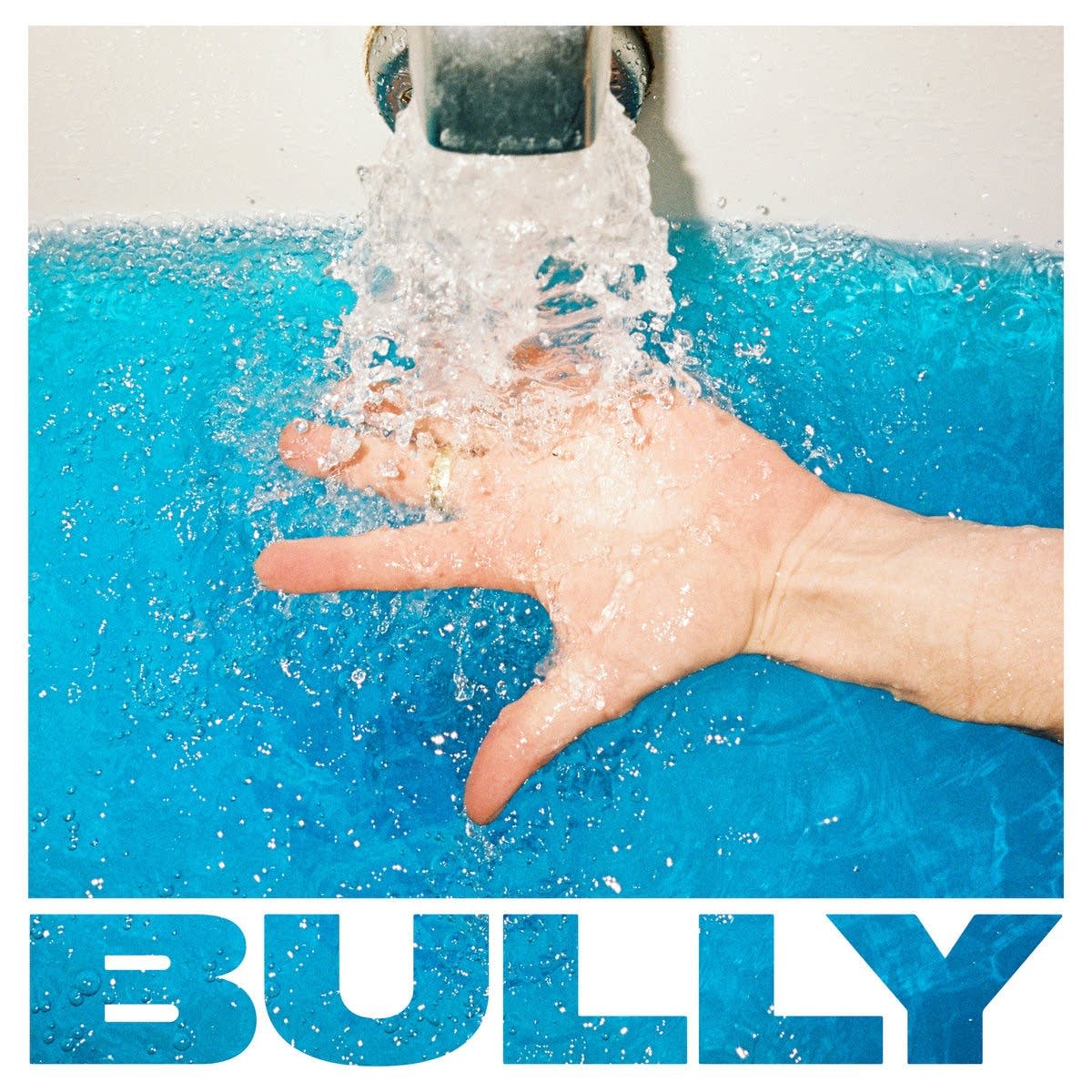
Bully – SUGAREGG
Genre: Indie Punk
Favorite Tracks: “Add It On,” “Where To Start,” “Prism,” “Not Ashamed”
I was smitten with Bully from the very first moment I first heard “Milkman” on a random SoundCloud link in 2014. It was one of those rare Online gifts, like the right song was coming to me randomly at the right time. Certainly in retrospect, the narrative of a former Steve Albini intern getting signed by Columbia to put out a record of crunchy, straightforward, ‘90s-adjacent alternative rock songs, with that fucking voice, is the kind of thing I’d like pumped into my veins—major labels taking risks on decent grungy rock bands in fucking 2014? Whew. It couldn’t be me, but YES, absolutely, get fucking paid. So to lay it all out there, everything Alicia Bognanno has done under Bully is just my kinda thing, comfort food if it ever existed for a kid who grew up exploring the vast corners of ‘90s radio rock and came out loving The Breeders, Hole, and Belly. And yet… When I go back and listen to the previous two albums, neither truly blow me away, at least not as a critic. As a fan of the sound, and as someone who (spoiler alert) just listens to things to feel at ease, I love Bully. But the critic in me wanted something more. There are great songs, sure, but I don’t find myself particularly engrossed with the entirety of FEELS LIKE or LOSING, despite both being so centrally a part of what I was drawn to in the first place. The material from that initial EP in particular remains some of the most satisfying dopamine hits she’s written to date, and yet when they carried over onto FEELS LIKE, there was a disconnect in the rerecording, as though some of the just fuckall energy had been suppressed upon signing to a major label. That’s cynical, and it’s almost too ‘90s a narrative for me to want to buy into. But it’s the only thing I can come up with to say listening to the songs side-by-side. After LOSING, I had kind of just written off Bully as a project that would feel warm and cozy, but never in-my-face great.
But then I heard SUGAREGG and… Holy shit am I wrong!
Admittedly take what I’m saying with a grain of salt. I’m a Bully mark, and regardless of how “great” I thought the last albums were, this is my shit, critical analysis be damned. But from opener “Add It On” onward, it feels pretty immediately like the best thing Bognanno’s done in her career. The singles frankly remind me of that EP: urgent, instant, spontaneous. The bass on this album in particular is just such a visceral and integral part of the sound, often the first thing you hear on a song and memorable in ways past releases haven’t been—the way it carries “Where to Start,” or slowly walks us through the catharsis of “Prism” feels considered. LOSING, almost admirably, kept things in the same gear, but SUGAREGG is a dynamic mix of blown-out, five-alarm highs (“Not Ashamed,” “Stuck In Your Head,” “Add It On”), crashing, fierce, straightforward, radio-ready hooks (“Where To Start,” “Like Fire,” closer “What I Wanted”), and thick, fuzzy pauses (“Prism,” “Come Down”). Bognanno’s time writing songs for HER SMELL seems to have translated into focused, exciting narrative cohesion and an album that understands the desperate and gripping highs and lows of a full-length listen better than either LOSING or FEELS LIKE ever did. And yes, all of this is still comfort food, something warm and cozy in relation to my listening habits, but this is the best Bully album, full stop. The fact that this is her first album with Bully as a solo project makes the ‘90s rock narratives I want to begin weaving in my head go into overdrive, and that’s again trite and over-the-top but fuck, whatever was holding back the last two albums for me has been conveniently shed on the same record where she said adios to her bandmates. SUGAREGG has taken me by surprise! It might take you by surprise too. [CJ Simonson]
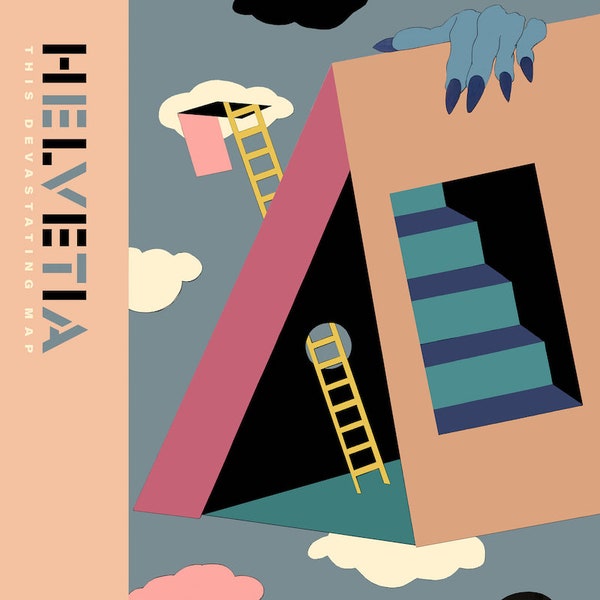
Helvetia – THIS DEVASTATING MAP
Genre: Psychedelic, Jam, Slowcore
Favorite Tracks: “Inverted,” “Reaktor,” “Echo Location,” “Those Eyes,” “3 Boys”
My least favorite night in Los Angeles occurred at the Duster concert at The Regent Theatre, 10 days before COVID was declared a pandemic and wiped out live music for the foreseeable future. The show was utter chaos on every level. Fleeting acquaintances from Silver Lake adventures past pretended to have forgotten we’d ever interacted, I saw N-95 masks worn in public for the first time in my pre-Coronavirus life, and the former bandmates I’d gone to the show with kicked me out of their project over text just a few days later. I have never felt as fed up and angry with indie music as I did after Duster’s droning serotonin leech of a set.
In the months since that godforsaken night in Downtown Los Angeles, a lot has changed for the worse in the world while things have improved in my personal life. I graduated college with an award from a school that almost kicked me out for failing too many math classes, I wrote for a big name publication I have read every day since I was 14, I finally moved into an apartment that has air conditioning, and I took over as Music Editor of this humble website that I love so much. The interpersonal behavior that made the Duster concert one of the most disheartening evenings of my adult life now feels stupid and juvenile, and, at long last, I feel stable enough to revisit Jason Albertini’s sprawling discography.
Helvetia live in the shadow of their doomier forebear, but I often gravitate towards their music over Duster’s. While Duster sounds like the soundtrack to the darkest moments of a crushing loss, Helvetia sounds like the sun-streaked memories that make dissipation in life so painful. Moments on THIS DEVASTATING MAP sound more like Neil Young or Townes Van Zandt than they do Slint. The track “Reaktor” is a straightforward and lovely indie rock song whose folk-y vocals exhibit classic rock levels of accessibility. “3 Boys” uses acoustic chords, pretty upright pianos, and Boys Age-y muffled singing to craft a vignette that is both gut-wrenching and hospitable. The dipping guitar whammies on “Inverted” and the song’s nonsensical lyrics are almost charming in their uncharacteristic simplicity. Much like its surrealistic cover, the best songs on THIS DEVASTATING MAP are warm, art-y, and endearing.
Although its disposition and songwriting are a welcome respite from Albertini’s typically severe artistic visage, Helvetia’s latest still exhibits the same pitfalls that can make the Duster universe so boring. For every well crafted song on the record, there is a poorly captured jam sesh. “Castle Rock” has nice sonics, but does little more than sound like a lost Can B-side. Opener “Devastating Map” is a yell-y bohemian romp that does little to make me miss the sloppy commune house shows of my Orange County teens. Overall, there is a purposelessness to THIS DEVASTATING MAP that is trite and characteristic of the greater Jason Albertini discography. As a whole, the record doesn’t redeem the calamitous social experience I had on that early March night at The Regent Theatre, but it is one of the more concise and palatable gems in Helvetia’s impenetrable back catalog. I’m realistically not going to think about this record for a very long time after this review gets its requisite 10 favorites on Twitter, but if I had to play someone an album that I thought summed up Helvetia in a nutshell, I’d put on the band’s latest. [Ted Davis]
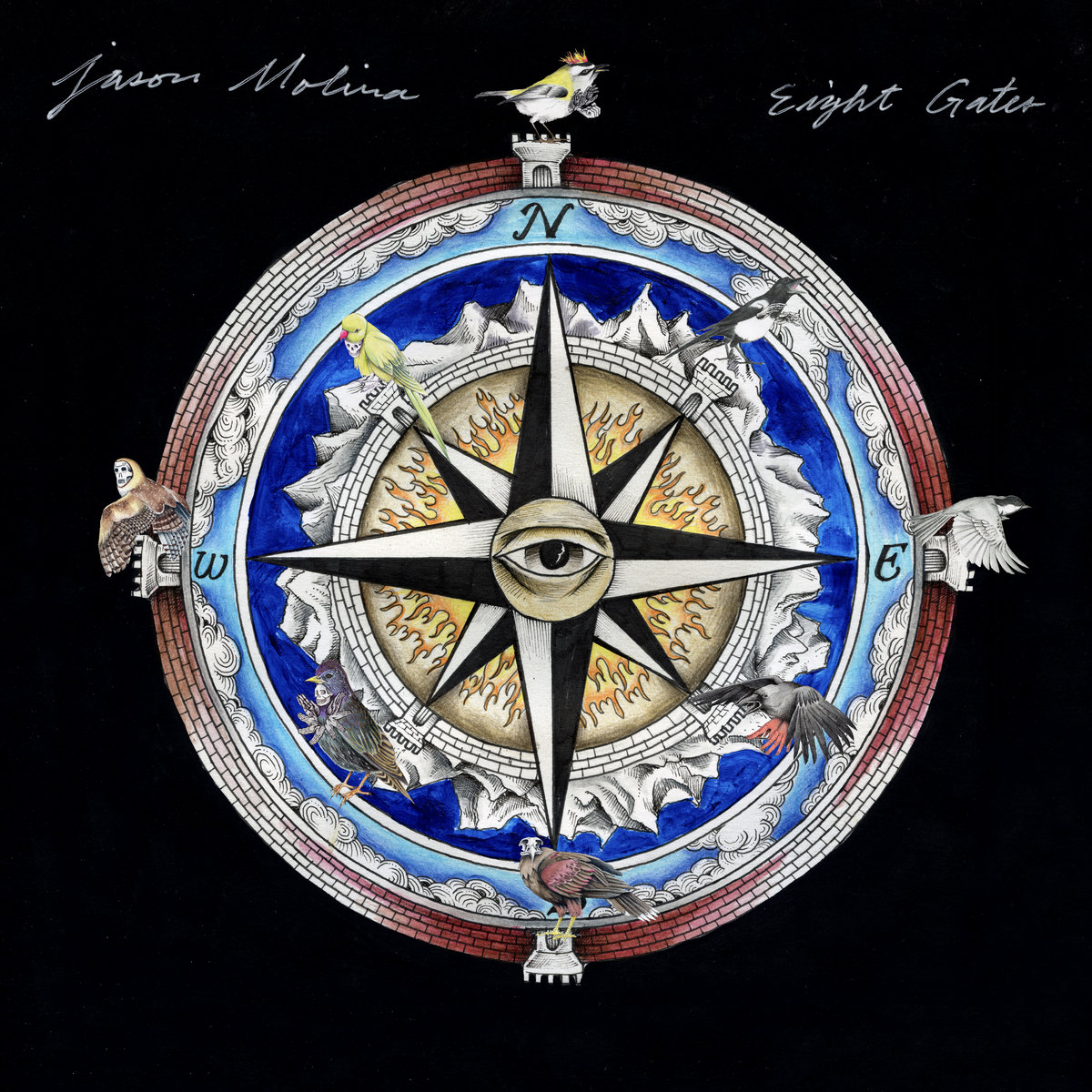
Jason Molina – EIGHT GATES
Genre: Indie Folk
Favorite tracks: “Whisper Away,” “Old Worry,” “Thistle Blue”
Posthumous records always carry a certain impact. Hearing new material years later has a haunting, resonating effect. The latest release of Jason Molina’s work, EIGHT GATES has an abrupt quality that pronounces that echo. Many songs seem to just end, unfinished or inconclusive, premature in their resolution, brief and fleeting, which allows the album to feel complete and hollow with a loss not yet fully defined. As to be expected of the artist who created Songs: Ohia, these tracks are leaded-down, thick with sorrow, and sparse. With all that empty space it’s easy to get lost. The opening track, “Whisper Away,” begins with bird song and the empty multitudes of life. Many tracks bear hymnal qualities, a commune with faith and nature on a secular playground: “Fire on the Rail” opens with naked vocals, delivering a sermon of self-decay. “Thistle Blue” is backed by organ laments, each song its own procession, paced and measured, with the fluidity of life. There’s a moment, the exact middle of the album at the top of “She Says,” where Molina addresses the recording studio. “The perfect take is that as long as the person singing is still alive, that’s really it.” The song goes on to say that, though it may seem like this is the worst year, “the saddest (year) will come.” He takes on an early draft of “She Says,” already fully realized until the end where it tapers off into nothing, letting the stirring tone it sets linger. This is the sort of album that will strengthen with familiarity and repetition, an album whose meaning and purpose grow with you, finding something new to glean with each play.
It’s easy to read into a posthumous release. Everything written seems to be pointing to an end, but although Molina’s death does not influence tracks written and recorded years before, the posthumous nature of the release does define it in many ways. These are Dickinson’s poems found in the margins of books and tucked away in letters. Although there was intent behind their recording and writing, the release to the world had not yet been ordained by the artist, allowing a raw, intimate, almost secret look at his work. This may be a general analysis of Posthumous Records™, but with someone whose subject matter and art rode so close to that line, it takes on a new, deeper meaning. Although similarly toned and often starkly abrupt or unfinished, the collection of recordings that is EIGHT GATES is deservedly indelible. [Tapley Eaton]

Old 97’s – TWELFTH
Genre: Alt-Country
Favorite Tracks: “The Dropouts,” “I Like You Better,” “Belmont Hotel”
Old 97’s are one of the only bands my parents successfully grandfathered me into enjoying, along with The Wallflowers and Crowded House. Not as literate or idiosyncratic as Wilco, nor as heavy and raucous as Uncle Tupelo, they churned out catchy, witty country rock and sappy ballads fit for bars and adult alternative stations alike. On his solo records, frontman Rhett Miller could have gone for the indie crowd like Jason Isbell or the disgraced Ryan Adams, both of whom started in the same alt-country scene, but instead Miller’s solo records were full of smooth, crooning pop-rock.They are the definition of a one-trick pony that did their one trick well, especially in the ‘90s with great records like TOO FAR TO CARE and SATELLITE RIDES. With eleven albums under their belt and a steadfast refusal to evolve, there is little chance of them deviating from their established median. For better or worse, TWELFTH still provides plenty of bouncy acoustic strumming and rough electric leads, and it will satiate their long-term fans, even if it has no chance of replacing any of their career highlights.
The only notable element, the historically tortured poetry of Miller, finally takes steps toward refreshing positivity. I don’t care for his increasingly self-referential songs like “Confessional Boxing” that are self-aware, yet unwilling to judge or say anything about it. However, “I Like You Better” is a hilarious promise to give up his favorite things since he likes his partner better, possibly the corniest country attitude they’ve ever embraced, and the standing bass and violins on “Belmont Hotel” support a moving portrayal of a once-broken relationship that was made stronger than ever through hard work. As a whole, the music is disappointing because their previous record, GRAVEYARD WHISTLING, featured their most holistically morbid and eerie atmosphere to date. When TWELFTH tries something similar on “This House Got Ghosts” and the opening of “Our Year,” the sketchy vocal production hurts with robotic multitracking and an unnaturally hoarse delivery. It picks up a decent acoustic groove and one of several good solos, only to be smothered by directionless electric crunch. Old 97’s have always had a ramshackle approach to production, but the various guitars clash more than they coalesce and the tunes are not good enough to let it slide. That’s the problem with being a one-trick pony; if any one of its few legs falls apart, it all comes down, and it’s obvious when it doesn’t fully impress when we’ve seen this pony do fantastic before. [Blake Michelle]


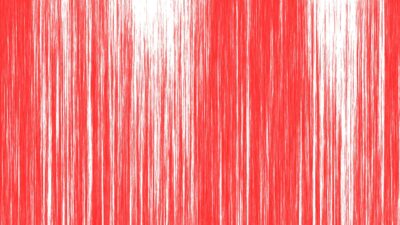

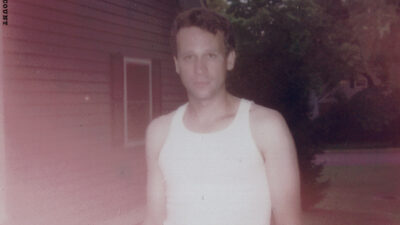
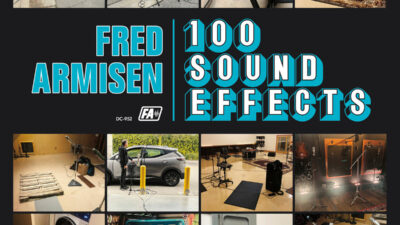





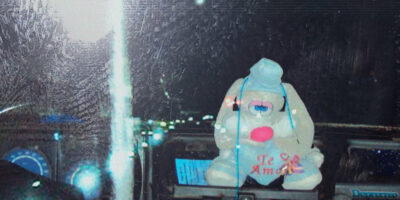

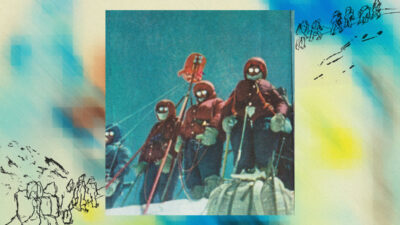
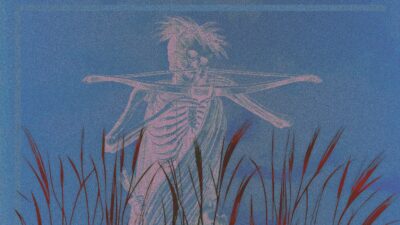
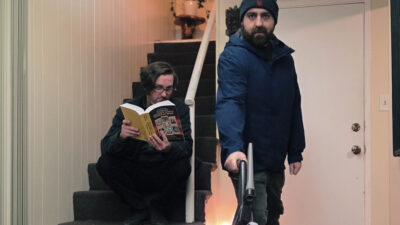
Comments